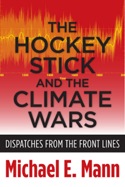 “A cliché,” according to the late Brian O’Nolan, “is a phrase that has become fossilised, its component words deprived of their intrinsic light and meaning by incessant usage. Thus it appears that clichés reflect somewhat the frequency of the same situations in life. If this be so, a sociological commentary could be compiled from these items of mortified language.”
“A cliché,” according to the late Brian O’Nolan, “is a phrase that has become fossilised, its component words deprived of their intrinsic light and meaning by incessant usage. Thus it appears that clichés reflect somewhat the frequency of the same situations in life. If this be so, a sociological commentary could be compiled from these items of mortified language.”
O’Nolan is perhaps better known as Flann O’Brien, the author of such staggering works of comic genius as The Third Policeman and At Swim-Two-Birds, but for many years he contributed a column to the Irish Times under the pen name Myles na Gopaleen. One of the highlights of that column was the occasional appearance of extracts from Myles na Gopaleen’s Catechism of Cliché.
I was reminded of that catechism when I stumbled upon the “core principles” of the International Climate Science Coalition, a list of the doctrines the ICSC expects its members and supporters to believe and promote. Like Myles’ least favourite constructions, they are certainly fossilised and deprived of any intrinsic meaning but have the added attraction of being for the most part untrue.
A catechism, as the more literate (or Catholic) reader will know, is:
…a summary or exposition of doctrine, traditionally used in Christian religious teaching from New Testament times to the present. Catechisms are doctrinal manuals often in the form of questions followed by answers to be memorized, a format that has been used in non-religious or secular contexts as well. [Wikipedia]
Amongst the doctrinal manuals available for today’s climate sceptic there are the popular scriptures by Plimer and Wishart, the undergraduate philippics of Carter and Allegro, and the industrial grade biblical length blockbuster produced by Fred Singer and his Not the IPCC project. So much to choose from, such a lot to read. How is the would-be denier to thread their way through such a maze of doctrinal complexity, uncertainty and contradiction? Let us help them by preparing a climate crank catechism in the style of Myles…
Continue reading “The catechism of climate crank cliché”
Like this:
Like Loading...


 The UN Environment Programme’s just released
The UN Environment Programme’s just released  I knew that climate scientists were on the receiving end of some nasty emails, but it was still a shock to read James Hansen’s
I knew that climate scientists were on the receiving end of some nasty emails, but it was still a shock to read James Hansen’s  “A cliché,” according to the late
“A cliché,” according to the late